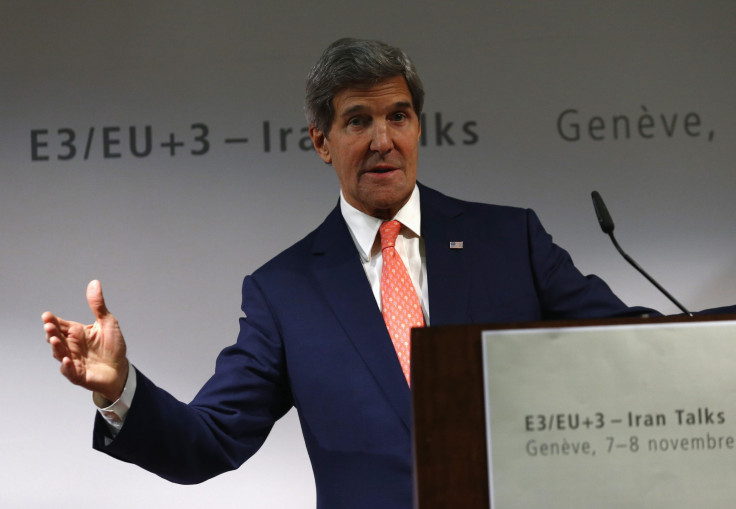Iran Nuclear Deal Drives Oil Prices Down

A long-sought agreement between Western powers and Iran that loosens sanctions for closer monitoring of that country's nuclear program sent oil prices lower on Monday and should remove some of the related risk premium from the oil market for the near future.
The U.S. and its partners from Britain, France, Germany, Russia and China (P5+1 countries) agreed to ease sanctions on Iran in return for a temporary limitation on how much uranium Iran can enrich. The preliminary, six-month agreement was signed in hopes to buy more time before a more permanent deal can be reached. Iran will also receive around $4.2 billion in revenue from its oil sales. In addition, the U.S. has agreed not to increase sanctions on Iran for the next six months.
"I think we will get a bit of a knee-jerk reaction [to the deal], but I still think that oil will continue to trade lower for some time. ... the Middle Eastern premium is eroding quite fast," Jonathan Barratt, chief executive officer of Sydney-based commodity research firm Barratt's Bulletin, told CNBC Asia's Squawk Box.
Brent crude fell more than 2 percent, to $2.42 to $108.63 per barrel, while the U.S. benchmark fell around 84 cents to $93.64 per barrel on Monday.
London-based Capital Economics, one of the world's leading independent macroeconomic research companies, expects the deal to contribute to a fall in oil prices from $90 per barrel by the end of 2014 to $70 by the end of 2020.
The U.S. and international partners have cut Iran’s oil sales from 2.5 million barrels per day (bpd) in early 2012 to 1 million bpd today, which has denied Iran the ability to sell almost 1.5 million bpd. For Iran that is an $80 billion loss since the beginning of 2012. In addition to the deal, Europe’s crude oil ban will remain in effect, and Iran will be held to approximately 1 million bpd in sales.
“I don’t think it [the agreement] will have a near-term effect,” Charles Ebinger, director of the Energy Security Initiative at the Brookings Institution in Washington, told International Business Times. “I don’t think the oil market is going to see any kind of feeling that things are better off today; it does not amount to anything,” he said, citing the crisis in Syria, Iran’s continued support for terrorism and Iraq’s sectarian fighting.
© Copyright IBTimes 2025. All rights reserved.






















